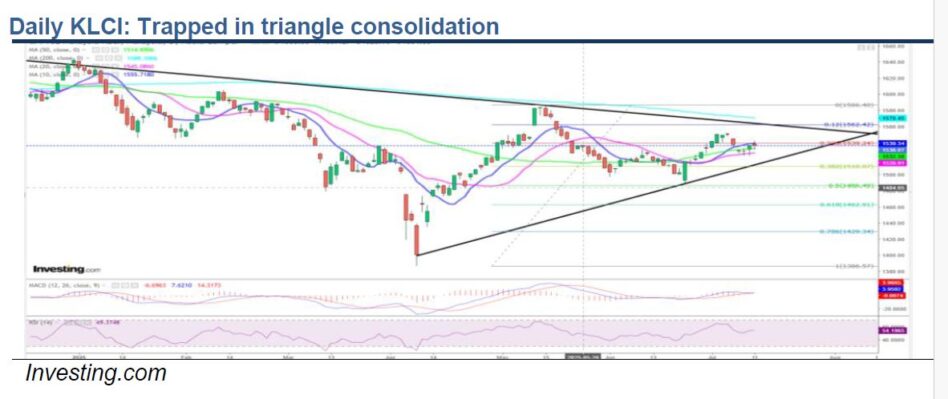ASIAN markets were mixed last Friday, as investors digested Trump’s surprise announcement of a 35% tariff on Canadian imports (effective 1 Aug) and hints at broader global tariff hikes—rekindling fears of a renewed trade war and a potential drag on global growth.
Meanwhile, China and Hong Kong equities outperformed, buoyed by rising expectations of additional stimulus middling inflation data released last week.
The Dow slipped 279 points to 44,371 after Trump imposed a 35% tariff on Canadian imports, stoking renewed trade war fears.
Over the weekend, he escalated tensions with a 30% tariff on Mexican and EU goods (effective Aug 1), following earlier tariffs on South Korea, Japan (25%), and Brazil (50%).
Markets remain on edge for further action against major US trading partners. This week, earnings from JPMorgan, Goldman Sachs, Citi, BlackRock, TSMC, ASML, Netflix, J&J, and PepsiCo will be closely watched.
Meanwhile, a busy data week includes June CPI, PPI, retail sales and the Michigan consumer sentiment survey.
Tracking tepid Wall St and regional markets coupled with renewed foreign outflows, KLCI eased 0.5-pt at 1,536.1 after rising as much as 6 pts intraday.

Market sentiment remained resilient at 1.13 (vs 1.26 prior), supported by 3.37 bil shares traded worth RM2.30 bil.
The KLCI remains range-bound within a triangle consolidation as investors assess the impact of fresh U.S. tariffs on key trading partners and potential AI chip curbs affecting Malaysia.
In the near term, the KLCI is expected to remain in range bound consolidation mode as investors digest the implications of Trump having ratcheted up trade tariffs on key trading partners over the last two weeks. Sentiment remains cautious amid multiple headwinds, including:
(i) Uncertainty over a more complex negotiation process with Washington to ease the 25% tariff by 1 Aug.
(ii) Potential US restrictions on AI chip exports to Malaysia.
(iii) Renewed foreign selling, reversing the RM335 mil net inflows seen over the prior two weeks.
(iv) Domestic policy headwinds, such as upcoming fuel and power subsidy rationalisation, port tariff hikes, and the SST expansion in 2H25, which could weigh on consumer spending and corporate earnings visibility. —July 14, 2025
Main image: Reuters




